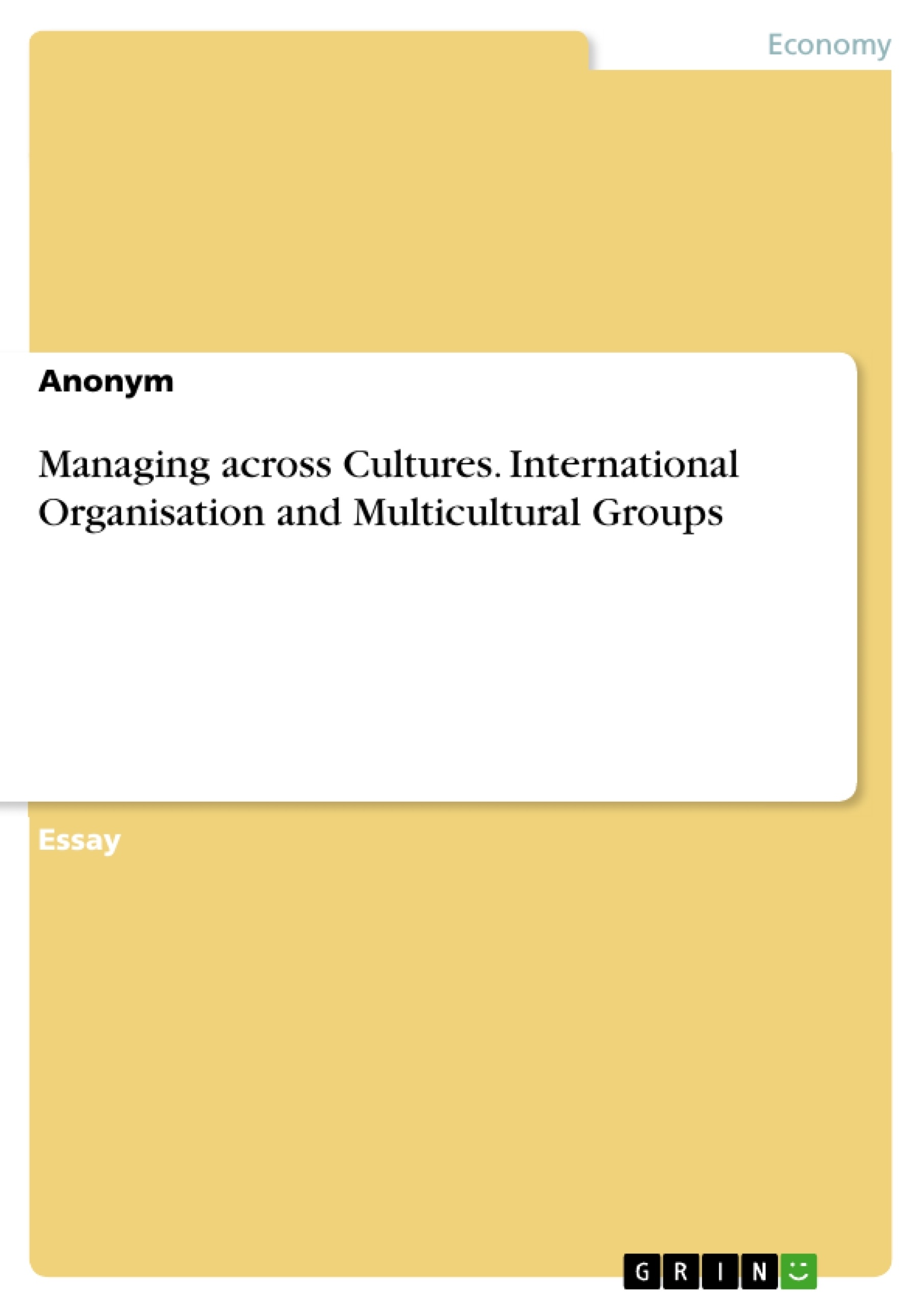The report’s main aim is to offer an analysis of the cross-cultural challenges that Worldpay - a UK-headquartered global payment processing company - will face as a result of the merger with Vantiv, a company that operates in the same sector but is from a different country – United States. The report will also explore how the merger will lead to challenges for the new international teams within the organization. In the globalised world, it is important to be aware of the cultural differences as this can have an impact on the management of multicultural groups, international organisations and managing across culture due to globalisation.
Inhaltsverzeichnis (Table of Contents)
- Introduction
Zielsetzung und Themenschwerpunkte (Objectives and Key Themes)
This report aims to analyze the cross-cultural challenges that Worldpay, a UK-headquartered global payment processing company, will face following its merger with Vantiv, a US-based company operating in the same sector. The report will also explore the challenges arising for new international teams within the organization.
- Cross-cultural challenges in global mergers
- Impact of globalization on business operations
- Challenges faced by the FinTech industry
- Impact of mergers on international teams
- The role of cultural differences in global business
Zusammenfassung der Kapitel (Chapter Summaries)
- Introduction: This chapter provides an overview of globalization and its impact on businesses, including the pros and cons. It also highlights the specific challenges faced by the FinTech industry, such as cryptocurrency crashes and data overload.
Schlüsselwörter (Keywords)
The key terms and focus topics include globalization, cross-cultural management, mergers and acquisitions, FinTech industry, cryptocurrency, data overload, international teams, and cultural differences.
Frequently Asked Questions
What is the main focus of the Worldpay and Vantiv merger report?
The report analyzes the cross-cultural challenges arising from the merger between a UK-based company (Worldpay) and a US-based company (Vantiv) in the payment processing sector.
How does globalization affect international team management?
Globalization requires managers to be aware of cultural differences, as these can significantly impact communication, collaboration, and the overall effectiveness of multicultural groups.
What specific challenges does the FinTech industry face today?
Key challenges include cryptocurrency market volatility, data overload, and the need to integrate different corporate cultures during mergers and acquisitions.
Why is cultural awareness important in global mergers?
Cultural awareness helps in identifying potential conflicts early, fostering better integration of international teams, and ensuring that strategic goals are aligned across different regions.
What are the "pros and cons" of globalization mentioned in the report?
Globalization offers access to wider markets and talent (pros) but also brings complexities like cultural friction, regulatory differences, and increased competition (cons).
- Arbeit zitieren
- Anonym (Autor:in), 2018, Managing across Cultures. International Organisation and Multicultural Groups, München, GRIN Verlag, https://www.grin.com/document/498858



